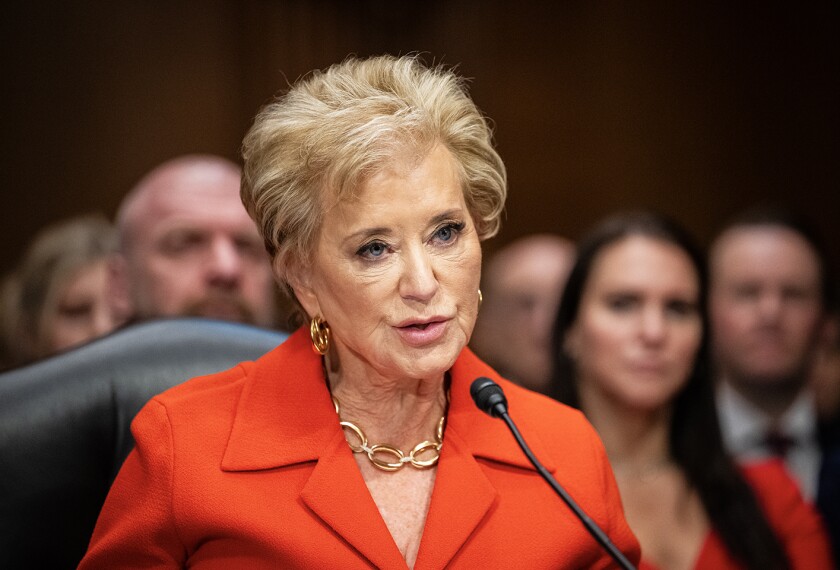Researchers have found that schools are reluctant to make major changes even after failing to reach student-achievement targets under the No Child Left Behind Act for five consecutive years.
Now, a Government Accountability Office report suggests that at least 6 percent of the 2,790 schools facing the severest sanctions under NCLB took none of the law’s prescribed actions to initiate improvements. What’s more, the congressional watchdog agency says, the number may actually be higher. The Department of Education hasn’t checked to see whether states are adequately monitoring the restructuring activities in their schools, according to the GAO.
The department “does not require states to report on the specific measures taken for each school, and therefore, the department has limited information on whether states have found that some districts may not be in compliance with [NCLB] requirements,” says the report, released Sept. 5.
For more stories on this topic see our Federal news page.
In fact, the GAO estimates, 42 percent of schools in the corrective-action and restructuring phases under the law did not receive all the help they were entitled to.
In studies commissioned last year by the American Enterprise Institute, researchers documented that most schools in the law’s corrective-action and restructuring phases had chosen to make few changes.
The authors attributed that lack of action to weak enforcement by the federal government and to schools’ efforts to escape major overhauls by using the law’s catchall category for “other” changes. (“U.S. Urged to Rethink NCLB ‘Tools’,” Dec. 6, 2007.)
The GAO found similar results. Forty percent of schools facing restructuring made “other” changes, such as creating smaller learning communities or reopening under a new theme.
By comparison, 27 percent of such schools replaced portions of their staffs, 9 percent contracted with a different education provider, and 5 percent were taken over by their states—much stiffer remedies available under the law. Just 1 percent of schools closed and re-opened as charter schools, the report says.




